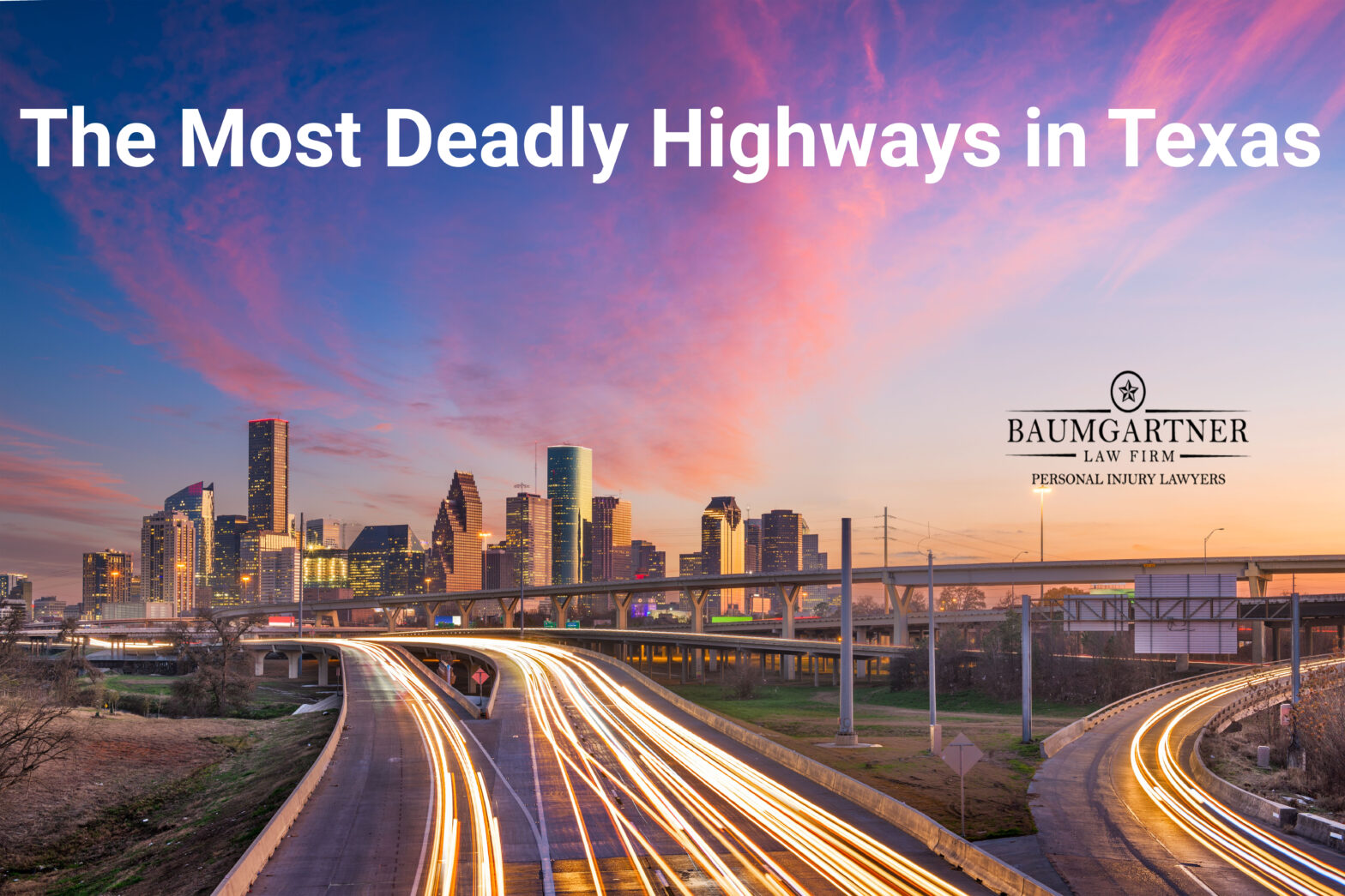 (281) 587-1111
(281) 587-1111  (281) 587-1111
(281) 587-1111 
Many people understand that highways can be exceptionally deadly because of the speed at which cars travel, the large influx of cars in multi-lanes, and the sheer amount of distractions that can make driving difficult, from eye-catching billboards to internal distractions like texting and talking on the phone.
However, many Texans might not be aware that the state boasts some of the deadliest highways in the nation. And Houston has its fair share of dangerous highways.
According to the Houston Chronicle and Houston Public Media News 88.7, approximately 700 people have died in 200 fatal crashes in one month alone. Auto accident attorneys in Texas see the results every day.

Moreover, the research also points out that approximately 1/3 of people who have died in a highway accident have done so on a Texas highway. Texas has more fatal truck accidents than any other state.
Overall, the research works to point out that Texas highways are not only deadly, but they also create a platform where this kind of deadliness does not seem to be ebbing up anytime soon.
With this in mind, one should be cautious when driving across one of the listed Texas highways.
The deadliest highways have been measured utilizing several reports that consider factors such as the number of accidents, rate of deaths per accident, comparison of accidents versus the loss of life, and other potentially dangerous incidents.
Some of the top deadly highways in Texas, and roughly in the United States overall, include:
Regardless, their total rate of fatalities should be enough to speak about just how deadly these highways can be. In just four years, many of these highways have lost hundreds of lives, indicating how rapidly traffic accidents can occur in these areas.
When considering the factors contributing to the danger of Texas highways, it is crucial to delve into various aspects that can significantly impact the occurrence of traffic accidents. As elucidated by the National Motorists Association, several key elements come into play, ultimately making a highway exceptionally perilous. These factors, when properly understood, can shed light on the reasons behind the high rate of crashes on Texas roads.
First and foremost, equipment failure plays a substantial role in the severity of accidents. The consequences can be dire when vehicles experience mechanical failures such as blown tires or brake malfunctions. To mitigate these risks, it is imperative to ensure regular maintenance of vehicles and stay informed about recalls, upgrades, and other factors that might contribute to potential shortcomings.
Another critical factor to consider is the impact of infrastructure on highway safety. The absence of multi-lanes, limited access to highways, poor design, or a lack of necessary improvements can all increase the likelihood of collisions. Therefore, it is crucial for authorities to prioritize infrastructure enhancements to create safe and efficient roadways.
Drinking and driving also significantly contribute to the number of automobile crashes, especially on highways where speeds are elevated. It is paramount to exercise caution when consuming alcohol and encourage others to do the same. Shockingly, approximately 25% of fatal car wrecks in Texas involve alcohol, highlighting the need for responsible behavior behind the wheel.
Additionally, distractions pose a significant risk to drivers. Activities such as texting, eating, using cell phones, or watching movies can divert attention from the road and increase the likelihood of accidents. It is essential for drivers to remain focused and avoid engaging in these distracting behaviors, particularly when traversing speed-intensive highways.
Furthermore, traffic congestion must not be overlooked as a contributing factor to the danger of Texas highways. The rapidly growing population has resulted in highways carrying more traffic than they were designed for, leading to overcrowding and increased risks. Addressing this issue requires timely and necessary upgrades to accommodate the current and future traffic demands.
While the aforementioned factors play a role in the number of Texas highway crashes, individuals must be aware of these risks and take proactive measures to mitigate them. By understanding the potential dangers associated with equipment failure, infrastructure shortcomings, drinking and driving, distractions, and traffic congestion, we can collectively work towards safer Texas highways for all.
For Texas highways, many factors are unique to the state, such as:
Presence of Big Rigs – In the state of Texas, a lot of these highways are used by truckers to export and import goods from and into the state. Not only are these vehicles huge, making any accident involving them that much more deadly, but it is equally important to point out that these big trucks also have a blind spot. Texas has more fatal 18-Wheeler accidents than any other state.
Oil & Gas – The research points out that the “fracking boom,” so named for the oil and gas industry that is paramount in Texas, has led to increased highway crashes due to the vast amount of hours placed upon truckers in the industry. This has led to an increase in sleep deprivation-based accidents overall.
Construction – Anyone who has visited major highways in Texas is aware that many are in the construction process, either through routine upkeep or as part of ongoing expansion. Either way, these changes to the infrastructure can often lead drivers astray, especially when not using caution, often leading to an increase in accidents.
No matter the reasons, Texas highways are considered extremely deadly, even compared to the rest of the United States. With that in mind, it is essential to perform routine checkups on your vehicle, take appropriate cautionary measures, and, above all else – drive safely!
If you have been injured in an accident in Houston, TX, and need help, contact our Houston car crash attorneys at Baumgartner Law Firm by calling (281) 587-1111.
6711 Cypress Creek Pkwy
Houston, TX 77069
If you liked this post, you may also like these:
Fatal Car Accident Statistics in Texas
How much space do you need between cars at highway speeds?
Determining Fault in Texas Car Accidents
How Long Do I Have to File a Car Accident Claim in Houston, TX?
How a Traffic Ticket Affects a Personal Injury Case
Most Dangerous Roads in Houston
Texas Trucking Accident Statistics
What is a Safe Distance Between Cars at Highway Speeds in Texas?
NEED HELP? HAVE QUESTIONS?